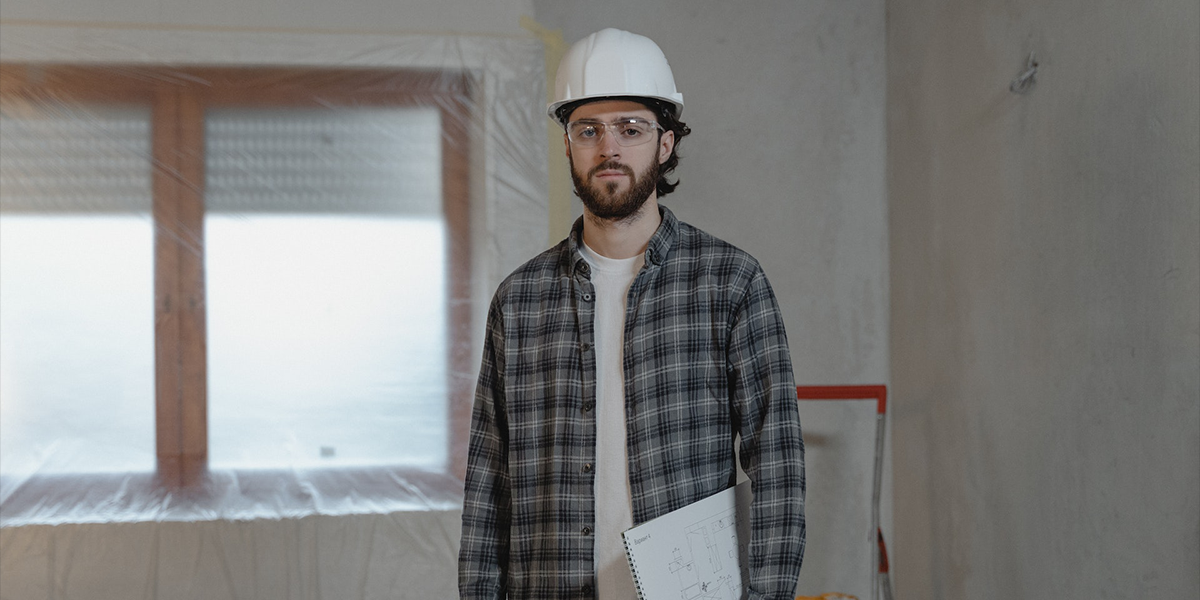Tradies might be pretty conspicuous in their hi-vis.
But careers in construction aren’t too highly visible to Gen Zs.
We surveyed 305 young Australians aged 15 to 24 about what they know and think of working in construction as part of our free online New-Print of Construction course, which teaches young people about careers in the construction industry, and found that only 2% of Gen Zs said they know ‘a great deal’ and 5% ‘a lot’ or about careers in construction.
While 28% said they know a ‘moderate amount’, a whopping two thirds in total said they know a little (45%) or nothing (21%). So in total not even a tenth of young people have any real idea about what’s going on in the construction industry.
It doesn’t really shock us then that three out of four Gen Zs we surveyed told us they were unlikely (48%) or definitely not (27%) going to work in the construction industry, or that about 17% were ‘neutral’.
Just 2% said they definitely want to work in construction, while 6% said they were likely to.
When all respondents were asked what one thing was most attractive about working in construction, one in three (33%) said the ability to make good money, 29% said working outside and it not being a desk job, 14% said every day being a different, 10% said for the potential to start a business one day, 7% said for its recognised skills to work overseas, while 7% said none of the above were attractive about it.
When asked what barriers they have to pursuing a career in construction, more than half (51%) of Gen Zs said it being physically demanding, 36% said it being too male dominated, 35% said sexism concerns, 22% said no flexibility, 21% said bullying concerns, 20% said working outdoors and it not being a desk job (this was also an attraction to others in the previous question), 16% said status was a barrier for them, while 23% said none of the above concerned them.
“Another thing that may be a factor for me to not pick this career is that I’m under the impression that this career isn’t necessarily highly considered in status which isn’t ideal if I want to tell my parents that I want to pursue this type of job,” an 18-year-old male from Victoria told us in response to the survey.
But here’s the thing.
Those stereotypes of the traditional blue-collar tradies with plumber’s cracks, wearing high-vis and driving a Toyota Hilux?
Well, while classic trades in construction like bricklaying, carpentry, concreting, plumbing and plastering are still in demand, what’s called ‘paraprofessional roles’ like architect, drafter, construction manager, civil engineering technician, contract administrator or even interior designer are reconstructing the industry’s image.
And creating exciting job prospects for Gen Zs.
While sexism and the profession being male dominated were high on the list of barriers to working in construction, particularly for females, there are still those keen to make a career out of it.
“My boyfriend’s father and mother own their own construction company and my boyfriend works for their company. They enjoy their jobs and take pride in it and it has motivated me to take on a passion in the construction industry,” a 16-year-old female from NSW said.
“My goal is to have a long term, stable job in the construction industry and to have a stable source of income doing something that I enjoy. I would like to work as a tiler or bricklayer.
“I’m looking forward to learning and progressing in terms of one of these jobs and I hope in the future I achieve the ability to work a job like this. My only downside is that a high percentage of males work in the construction industry and not very many females therefore there will be a lot of masculine energy.”
So if you’re keen on finding out more about how the construction industry is a viable career choice for almost everyone, check out our free online New-print of Construction course made in partnership with Construction Skills Queensland, which will break down everything you thought you knew about construction, with modules like ‘Skills of the Industry’ and ‘Gearing up for the job’ helping you better understand what it takes to make a career of it (and what the future could hold for you).






